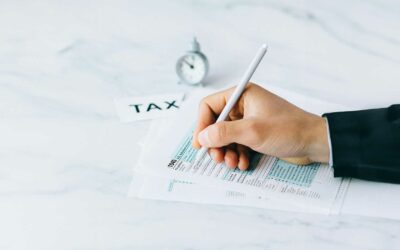How to cut your capital gains tax bill
Capital gains tax – or CGT – used to be important only to wealthy investors. But thanks to some government manoeuvrings, people with small investments and even those who did not realise that they had investments at all are being caught by it.
At Continuum we are looking at what is going on, how you could find yourself liable for CGT – and what you can do to help ensure you are not.
What exactly is capital gains tax?
CGT is a tax paid on any gains or profit made when you sell an investment asset such as shares or property. It is charged on the profit – not on what you sold the asset for.
In most cases it does not apply to primary residences so you won’t have to pay any tax when you sell your main home, although second homes, buy-to-let properties and holiday lets will attract it.
Expect to pay it on any profits you make when you sell:
- Shares that are not in an ISA or PEP.
- Most personal possessions worth £6,000 or more, apart from your car. This can include jewellery, paintings, antiques, and coins and stamps.
- Property that’s not your main home, such as buy-to-let properties or business premises.
- Your main home if you’ve let it out, used it for business or it’s very large.
- Business assets – if you’re a self-employed sole trader or in a business partnership.
How much you pay depends on your tax band.
- Basic rate taxpayers pay 18% on gains when selling residential property or 10% on other assets.
- Higher or additional taxpayers pay 28% on residential property and 20% on other investments.
There is an exemption for some profit before the tax is owed – but it is falling fast. The tax allowance (called the Annual Exempt Amount) on capital gains was more than halved from £12,300 to £6,000 last April and is set to be halved again to £3,000 from the beginning of the next tax year in April 2024.
It is this reduction of the allowance that is dragging more people into the CGT net.
How do you pay it?
You must report your gains by 31st December in the tax year after you made them and pay by 31st January. HMRC will send you a letter or email giving you a payment reference number. You can then use your payment reference to pay using the online tax payment service through online banking or cheque. Please note that there are different time frames for residential property, which should be taken into consideration.
How can you reduce your liability?
There are several ways to potentially reduce your CGT bill.
- If you are married or in a civil partnership, splitting your gain with your husband, wife or civil partner means you can double your allowance. So, if you own an asset such as a buy-to-let property jointly this allows a doubling of the profit threshold before CGT comes into play. So, for the tax year 2023-24, as a couple you can enjoy a combined profit of £12,000 without being liable for CGT.
- Assets can also be transferred between spouses or civil partners without incurring CGT. This is useful if one partner is in a lower tax band or has losses that can be used to offset any gains.
- If you are close to the lower limit of a tax band, you may be able to put yourself into a lower tax bracket – and pay CGT at a reduced rate – by reducing your income. Contributing to a pension may move you into a lower tax bracket.
- You could also invest money into an Enterprise Investment Scheme (EIS), which can reduce or delay your CGT liability.
- Timing could be important. By staggering the sale of assets over several tax years you have several years’ CGT exemption. You could sell part of a share portfolio on 3 April and the rest on 6 April to take advantage of two years’ CGT allowances.
- You can also offset losses on other assets against profits. And you can carry forward losses for future tax years, to offset against future gains. Just make sure you register the losses with HMRC within four years.
- You can transfer your assets into an ISA – but be careful not to go above the £20,000 annual ISA limit.
Get some expert help
The rules and regulations about most tax topics are complicated, and those relating to CGT particularly so.
Getting expert help can guide you to the best strategies for cutting your tax bill and help to ensure you avoid any of the traps that could increase what you have to pay.
For the expert help you need, simply call us at Continuum.
The information contained in this article is based Continuum’s understanding of HMRC taxation rates for tax year 2023/24 and does not constitute financial advice or a recommendation to suitable tax mitigation strategy. You should seek advice from a qualified tax professional regarding your own circumstances before embarking on any course of action.
The Financial Conduct Authority does not regulate taxation advice and some aspects of Buy to Let mortgages.
Levels, bases and reliefs from taxation are subject to individual circumstances and may be subject to change.
When investing your capital is at risk.
Pension savings are at risk of being eroded by inflation.



